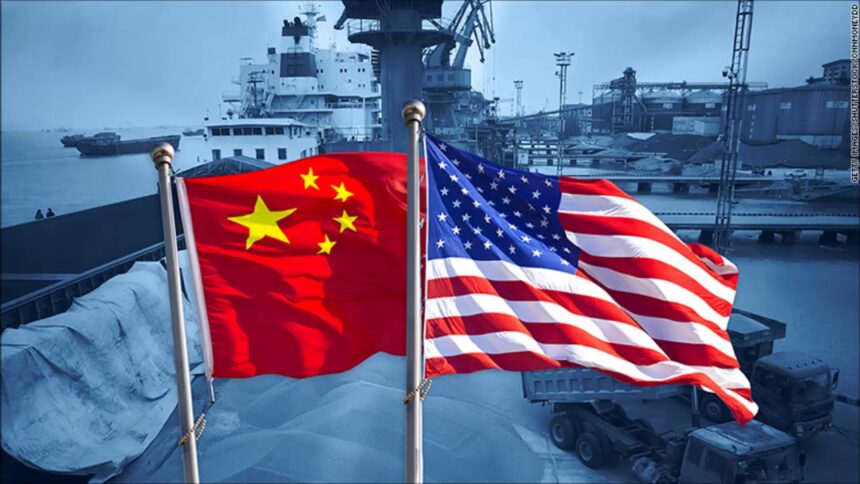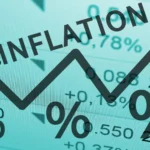U.S. Treasury Secretary Scott Bessent and chief trade talk negotiator Jamieson Greer set to meet with China’s economic leader He Lifeng in Geneva, Switzerland, this Saturday. These talk seen as the initial step towards resolving the ongoing trade war, which has significantly impacted the global economy. The news of the planned meeting was first announced by Washington, triggering a surge in U.S. stock futures and positive movements in the stock markets of China and Hong Kong.
Escalating Trade Tensions and Their Global Impact
The trade tensions between the two largest economies in the world have escalated in recent weeks, resulting in tariff rates on goods imports soaring over 100%. U.S. Treasury Secretary Bessent described the situation as nearly equivalent to a trade embargo. This ongoing standoff, coupled with President Donald Trump’s decision to impose duties on goods from several other countries, has disrupted global supply chains and shaken financial markets. These developments have raised concerns about a potential global economic downturn.
Also Read: China Rate Cut Boosts Stimulus Amid Trade War
Focus of the Geneva Talks
Sources familiar with the planning of the meeting suggest that the discussions will focus on reducing broader tariffs. The negotiators are also expected to address specific product duties, export controls, and Trump’s recent decision to end the de minimis exemptions on low-value imports. The talks are seen as a crucial step in de-escalating tensions before moving forward with comprehensive solutions. Bessent emphasized the need for de-escalation in order to make progress.
China’s Shift in Approach:
Initially, China had taken a hard stance, insisting that the U.S. remove its tariffs before any meaningful negotiations could take place. However, there has been a shift in Beijing’s approach. The Chinese commerce ministry confirmed that it had agreed to meet U.S. officials in Geneva. The decision reflects China’s desire to re-engage with the U.S., taking into account global expectations, its own interests, and the concerns of U.S. industry and consumers.
The Economic Stakes for China
China’s economy is facing significant challenges as its factory sector bears the brunt of the tariffs. Many analysts have downgraded their growth forecasts for 2025, with investment bank Nomura warning that the trade war could result in the loss of up to 16 million jobs in China. In response to these economic pressures, China’s central bank announced new monetary stimulus measures, including rate cuts and liquidity injections aimed at mitigating the negative impact of the tariffs.
Tactical Moves by China Ahead of Talks
Analysts have noted that the monetary stimulus could be a tactical move signaling to the U.S. that China is not negotiating from a position of weakness. Christopher Beddor, deputy research director at Gavekal Dragonomics, emphasized that the move was strategic, aimed at showing the U.S. that China was not panicking but carefully managing its economic challenges.
Also Read: Trump Proposes Bundled Deal Linking Trade and Defense Costs in Talks with South Korea
The US’s Growing Trade Deals and Mixed Signals
The U.S. has been engaging in numerous trade discussions with other countries since President Trump imposed tariffs on imports in April. These talks have involved 17 major trading partners, with some potentially reaching trade agreements as early as this week. Trump has sent mixed signals about the progress of these talks, while his administration works to avoid heavy import taxes through new agreements. A trade deal with the U.K. is progressing, and discussions with countries like Indonesia have also seen positive developments.
Challenges in Reaching a Trade Deal
Despite the ongoing talks, it remains uncertain how substantive these discussions will be. For meaningful geopolitical negotiations that took place, tariffs must be reduced. Both sides will need to agree on the scope and extent of tariff rollbacks. As well as decide whether they will schedule further talks. The meeting is expected to start the de-escalation process. But it remains unclear how much progress the parties can make without concrete agreements on tariff reductions.
The US Trade Deficit
President Trump’s tariff policies, designed to reduce the U.S. trade deficit, have had mixed results. Despite his intentions, the U.S. trade deficit reached a record high earlier. As the businesses rushed to import goods before the tariffs were fully implemented. However, the deficit with China has narrowed sharply due to the impact of the hefty tariffs on Chinese imports. This shift illustrates the complexities of Trump’s trade policies and their effects on the U.S. economy.
Conclusion
The upcoming Geneva talks represent a critical juncture in the trade war between the U.S. and China. The global economy is watching closely as both sides aim to find a resolution. Which addresses the economic challenges posed by tariffs and trade barriers. While the stakes are high both countries have acknowledged the need for dialogue. This meeting could pave the way for future negotiations that may restore stability to international trade.
Click here for more business news.






